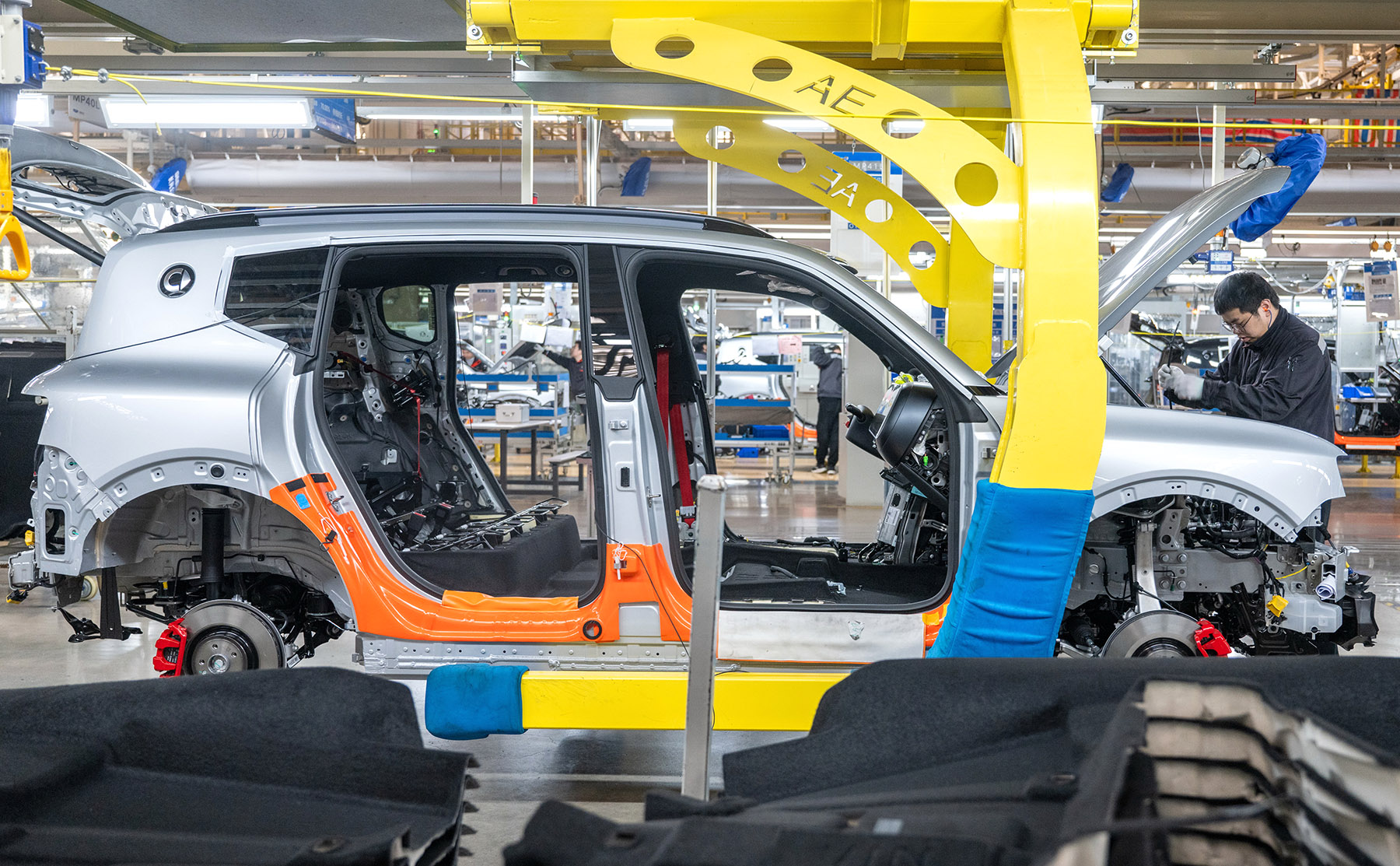
Sales of new energy vehicles in China are expected to exceed 16 million units in 2025, as the market enters a stable growth phase with annual growth rates moderating, experts said.
Ouyang Minggao, an academician of the Chinese Academy of Sciences, said after rapid growth for several years, China's NEV market will enter a moderate growth stage, but the total number of NEVs plying China's streets is expected to soar to 100 to 160 million units by 2030.
Ouyang made the comments at the China EV 100 Forum 2025, which wrapped up on Sunday in Beijing.
READ MORE: Revised rules aim to boost China auto market
In 2024, China's sales of NEVs amounted to 12.9 million units, marking a year-on-year increase of 35.5 percent, said the China Association of Automobile Manufacturers.
Ouyang said level 4 autonomous driving, powered by advanced AI large language models, will see large-scale commercial applications in mid-to-high-end vehicles in China by 2030.
Level 4 autonomous driving is part of broader standards developed in relation to the degree to which autonomous machines take over driving functions. Level 4 means that vehicles can perform all driving tasks under specific circumstances, but human overrides are still an option. Level 2 means partial driver assistance.
Chen Qingtai, head of China EV 100, an auto industry think tank, said: "The pace of intelligent vehicle development in China has exceeded industry expectations. In the first half of 2024, the penetration rate of L2 or level 2 plus advanced driver-assistance systems in new passenger vehicles surpassed 55 percent."
Xin Guobin, vice-minister of industry and information technology, said on Sunday that more efforts will be made to pursue breakthroughs in core vehicle-related technologies and widen cross-regional application pilots for autonomous driving.
Wang Chuanfu, chairman of BYD, said 2025 will be the first year for smart driving to become main features of cars sold in China, predicting that nonautonomous vehicles will soon become niche products.
"The pace of automotive intelligence is accelerating, with transformative advancements expected to mature within two to three years. Concurrently, China's NEVs currently lead the global market by approximately three to five years in both technological innovation and industrial chain capabilities," Wang said.
"It is critical to seize this strategic window, uphold open innovation, and leverage cutting-edge green technologies and products to propel higher-level international collaboration," Wang said.
By capitalizing on complementary strengths and fostering open cooperation, China's automotive sector can achieve global success while driving sustainable growth, Wang added.
ALSO READ: China's NEV industry surges from Jan to Feb
Zhang Yaqin, an academician at the Chinese Academy of Engineering and dean of Tsinghua University's Institute for AI Industry Research, said unmanned driving will be the largest application for embodied AI in the next five years.
Embodied AI, as highlighted in this year's Government Work Report, refers to AI that is integrated into physical hardware, such as robots. It represents a significant leap in intelligent systems capable of interacting with and adapting to their environments, experts said.
Zhang highlighted how generative AI and large language models are accelerating level 4 autonomous driving by addressing challenges like data scarcity, long-tail scenarios and common sense reasoning.


